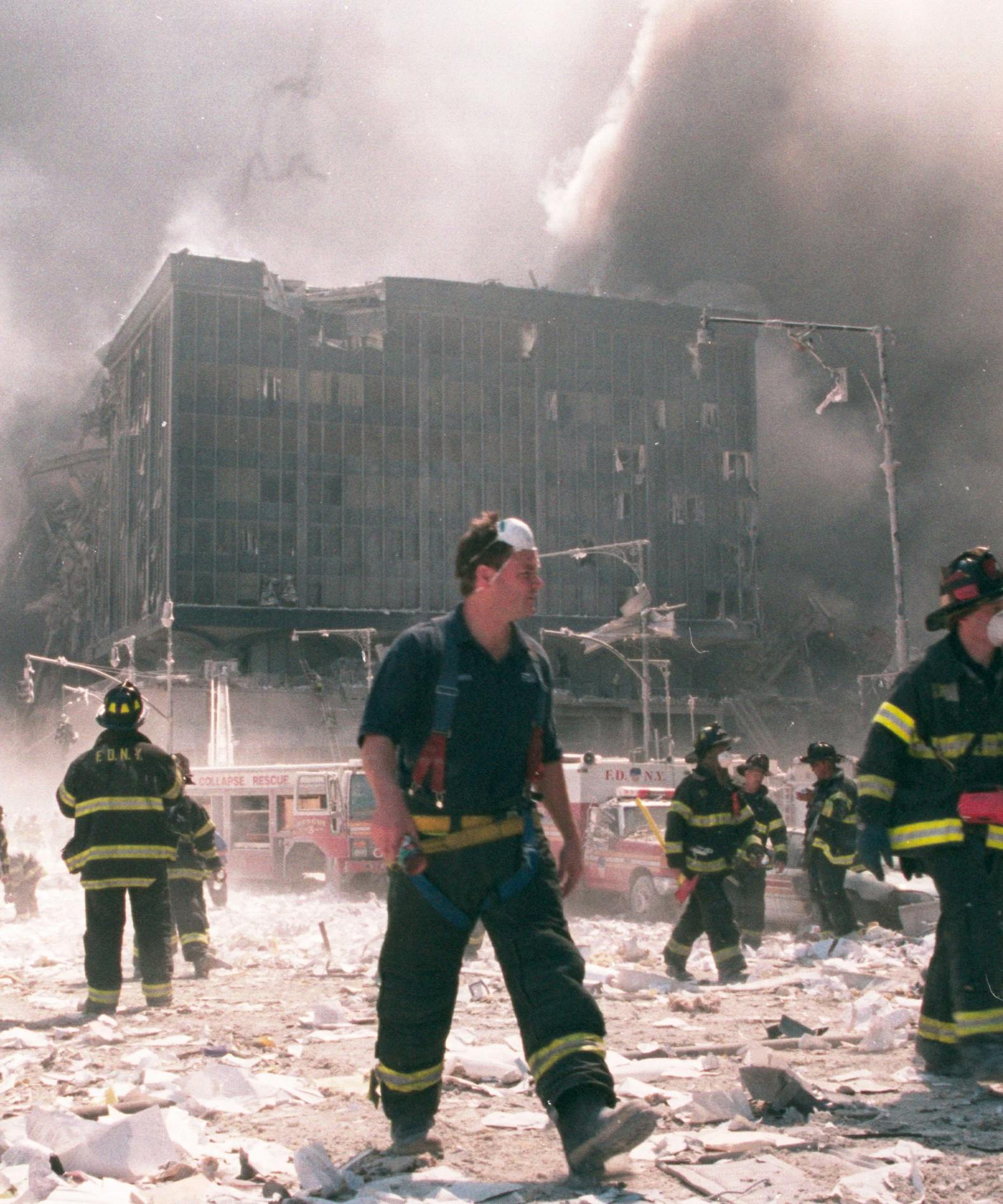My Generation Continues To Struggle With Mental Health. Is 9/11 To Blame?
A recent headline caught my eye: “The coronavirus could be Generation Z’s 9/11.”

First, it’s important to acknowledge who exactly we’re talking about — Gen Z most commonly refers to those of us born between 1995 and 2015. At our oldest, we’re 25. At our youngest, we’re 5 years old. Second, the coronavirus is not our 9/11. 9/11 is our 9/11.
I don’t remember September 11, 2001. I have many memories prior to this date, one being when I turned four in May of that year (memorable because I had a Scooby-Doo cake). Some of my peers and many of my elders can pinpoint exactly where they were the day the Twin Towers fell and thousands died, irrevocably changing the landscape of our nation. But for whatever reason, I can’t.
In my short life, I’ve also suffered from depression and other mental health issues. It turns out I’m not alone. Generation Z is more likely than any other generation to report mental health problems. From the genesis of our childhoods, we experienced 9/11, however differently, as individuals, alongside our families, friends, neighbors, future employers, and spouses. Though correlation doesn’t imply causation, the tragedy which occurred almost 20 years ago this September may have much to do with the state of Gen Z’s past and future mental health today.
Where Were You?
It’s a question any American will inevitably ask or be asked: Where were you that day? Many people remember watching the attacks in real-time on television or hearing the news at work. For people my own age, many of us were at school.
I know I attended daycare at that time, but my memories, which should be (even for a four year old) somewhat distinct, are almost nonexistent.
But 9/11 still remains embedded in the minds of people who have no memory at all of that day. As student Micah Musser writes in a reflection on the day, “9/11 refers not to an event, but to a cultural ethos.” For Millennials and Gen Z, the date is an indelible line in the sand, a marker for the Before and the After. Before Homeland Security, before TSA checkpoints in airports, etc.
For Millennials and Gen Z, 9/11 is an indelible line in the sand, a marker for the Before and After.
The event, which was once little more than a set of numbers on a calendar, has dictated our voting habits, our geopolitical stances, our economy, our church attendance, expressions of patriotism, support of the armed forces, travel, and so much more than we might be able to comprehend.
It makes sense that for America’s newest generation at the time, it would heavily impact and influence the most vulnerable aspects of our development in a society post-9/11.
Where Did It Start?
Research finds that now well into the throes of coronavirus, anxiety, depression, and stress are collectively affecting Gen Z. However, the same research also finds that Gen Z members were already struggling with these problems before the onset of the pandemic.
The question begs to be asked: Where did these problems originate?
Many point to the Great Recession as the linchpin in the declining relationship between mental health and Gen Z. There’s also evidence to suggest the crash of 2008 and 9/11 are inextricably linked. (With declining national confidence in our systems of power, the economy being one of them, this isn’t as far-fetched as it may sound.)
“People can experience collective trauma solely through the media.”
The aftermath — both physical and psychological — of 9/11 on first responders, residents of New York City, friends and family of victims, and countless others is well-documented and crucial in attempting to understand the magnitude of this tragedy. Research psychologist Dana Rose Garfin of UC Irvine, through years of study, also finds that “people can experience collective trauma solely through the media and report symptoms that resemble those typically associated with direct trauma exposure.”
As Garfin further explains, collective trauma implies that even those who did not directly experience the events of that day are still susceptible to the traumas and effects of those who did.
Unpacking National Trauma Together
Garfin also includes an interesting note in her study: suffering from collective trauma makes it crucial to identify those who are at risk of developing mental health problems as a result of the event.
In the immediate aftermath of 9/11, we felt how vulnerable we were.
In the immediate aftermath of 9/11, we felt how vulnerable we were. We suddenly realized how complex and connected the world is, and how our government could fail to keep us safe. With these inclinations of inherited wariness and skepticism, it’s no wonder that Gen Z’s propensity towards stress and anxiety has skyrocketed beyond what scholars and theorists could have anticipated.
Our response to assist survivors and memorialize victims is a testament to our fortitude, strength, and resilience. But perhaps unwittingly in that process, we may have neglected the influences which shaped my perception and that of my peers, leading to consequences even the most astute observer would have had difficulty in predicting.
Closing Thoughts
For Gen Z, a plethora of influences affects our perspectives and the way in which we treat challenges and struggles in our day-to-day lives. But those perspectives were birthed somewhere in the past and continue to thrive today in shaping our worldview. Even as we prioritize the older generations in the collective mourning of our pre-9/11 consciousness, it’s time we include the younger ones as well.